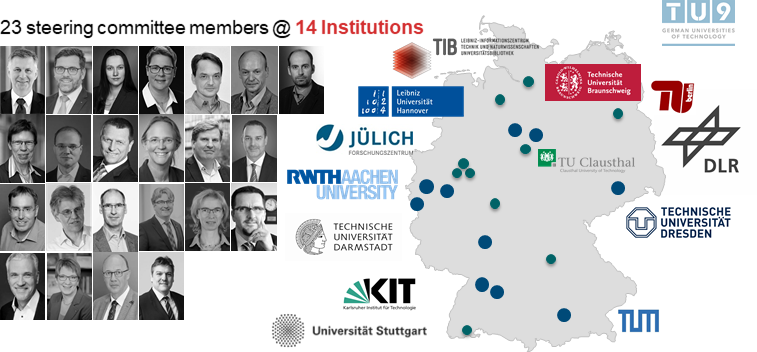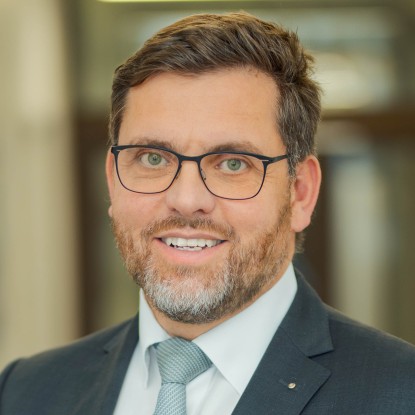It is in the nature of engineering that there is great variety in research, development and production. For instance, in computational engineering numerical data are generated and analysed whereas other engineering disciplines are focused on (data) samples that are generated in pilot systems, laboratories and the environment. Data sets are assembled by both individuals or teams as part of distributed networks. The types of generated data and their subsequent utilization are as diverse as the numerous kinds of engineering activities. For instance, an engineer can work with the same set of data or experiment that is continuously updated to create new measuring sequences or new configurations. Another engineer may process a data set in a series of steps thus modifying it. In a further scenario a data set may be shared by one research group with another which in turn will use and modify it. The amount of generated data can vary in size from a few bytes to several petabytes. Moreover, data can apply to very specific cases, e.g. a calibration curve of a given component, and may be ephemeral, e.g. live data from an EDR. Furthermore, in industrial cooperation research data are often subject to confidentiality, in which case access needs to be restricted on different levels.
NFDI4Ing follows a research approach guided by methods in order to meet the needs of their scientific community. The demands placed on RDM are equally heterogenous as the activities and types of research data of engineers. In the vast variety of problems in engineering sciences specific sub(domains) of research are addressed, resulting in highly specialised bespoke solution. Conversely, common features become apparent across disciplines regarding research methods and processes. From “ALEX” (bespoke experiments) to “GOLO” (field data) the NFDI4Ing archetypes harmonise these common features and represent the variety of RDM needs in technological research. They are the result of a bottom up-process running while the consortium was being established. They serve to lend structure to NFDI4Ing and represent broad classes of RDM demands.
Multiple teams from the TU Darmstadt, especially at the Chair of Fluid Systems , the University Library and the University Computing Centre (HRZ), have cooperated on the related projects and the successful project proposal. In the following years, several members of the TU Darmstadt will keep working on the challenging tasks that NFDI4Ing brings.
These include Professor Peter Pelz as the Co-Spokesperson of the Task Area “ALEX” (bespoke experiments) and as the Speaker of the Co-Spokespersons of the Task Area “Community CLuster”, which is responsible for the communication and user perspectives. Prof. Pelz is supported by his deputy Nils Preuß. Professor Thomas Stäcker is the Speaker of the Co-Spokespersons of the Task Area “Base Services”, with Gerald Jagusch as his deputy. The University Computing Centre (HRZ) represented in NFDI4Ing by Professor Christian Bischof who played a crucial role in the initiation of the consortium and who leads the research activities related to topics such as “software as research data” as well as furthers the base services. Another representative of the University Computing Centre is Verena Anthofer, one of the Co-Spokespersons of the Management Team.
The Task Area “Alex” (bespoke experiments) focuses on the challenges that engineers face when developing and performing a one-of-a-kind experiment to study a technical system. The experiment can be real or virtual and encompasses bespoke software and hardware solutions. Examples of such technical systems are process plants, buildings, prototypes, components, control systems, mechatronic systems, algorithms, mass transport, interaction interfaces etc.
The Task Area “Base Services” supplies services that are central for the engineering community in order to elaborate the tasks in the archetypes. It addresses especially the following challenges: data quality assurance and metrics for FAIR data, research software development, data storage, archives and repositories, text and data mining and data safety and sovereignty. Moreover, services for the development, evaluation and care of metadata, interoperable vocabularies and ontologies in various engineering disciplines as well as community workshops are provided to incentivize data-driven research and FAIR data.
NFDI4Ing brings together pioneers of FAIR data and the development of governance and services for RDM with a special focus on the engineering community. The consortium is constituted by 11 co-applicants and 55 participants encompassing the entire TU9, technical colleges, research partnerships, excellence clusters, Collaborative Research Centers and Transregio projects. On an international level NFDI4Ing cooperates with RDA RDM4Eng IG, IDSA, CESAER, AARC2, DataCite, EOSC, EUDAT CDI as well as with several FAIR working groups and initiatives such as Force11, EOSC FAIR, FAIRsFAIR and GO FAIR. The co-applicants are RWTH Aachen, TU Braunschweig, TU Darmstadt, TU Dresden, the German Aerospace Center, the Leibniz University Hannover, TIB Hannover, Forschungszentrum Jülich, Karlsruhe Institute of Technology, TU Munich and University of Stuttgart. Other important infrastructure providers that contribute to NFDI4Ing are the Leibniz Supercomputing Centre of the Bavarian Academy of Sciences and Humanities and the High-Performance Computing Center Stuttgart.






